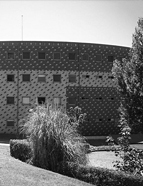

additional names include the medieval archaeologist Mário Barroca, an epigraphist and scholar of military and tumulus architecture; the other orientation, connected to Prehistoric Archaeology, is of a post-structuralist nature, to which the names of Vítor and Susana Oliveira Jorge (b. 1953) and Maria de Jesus Sanches (b. 1958) in the next generation may be added; their fieldwork has been centred around the Northern and Northern-Inland regions of Portugal.
Medieval History, a field with limited antecedents in the historiographical practice of the School prior to 1974 would witness interesting developments, albeit not always consequential. Humberto Baquero Moreno and Luís Adão da Fonseca are the main names connected to this field.
The former produced a vast and solid body of work between the 1960s and 1980s; his monograph on the Battle of Alfarrobeira (PhD thesis from the University of Lourenço Marques in early 1974) undeniably marked an era, in the context of a political and social intersection; and he set a trend. Of note was also his attention to the institutions and municipal powers, including the publication of the Minutes of city council meetings (e.g.. Loulé) and their systematic study (Porto, from the late 15th century to the mid 16th century, a project undertaken in the final years of his teaching on the MA in Medieval History, ca. 1995-ca. 2001). He also coordinated a manual on the Institutional and Political History of Medieval Portugal (ed. of the U. Aberta, 1995, with the collaboration of Luís Miguel Duarte, Maria da Conceição Falcão and Luís Carlos Amaral).
Baquero Moreno's teaching practice (taken here as the supervision of doctoral theses) resulted in the emergence of José Marques, a former pupil of Avelino de Jesus da Costa (1908-2000) at Braga's Seminário Maior [Seminary] and, like his mentor, a scholar of the Braga Archdiocese (the subject of a doctoral thesis defended in 1982 and published six years later), in this case in the 15th century period and more specifically in the times of the archiepiscopate of D. Fernando da Guerra (1417-1467);
